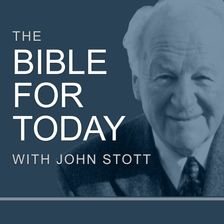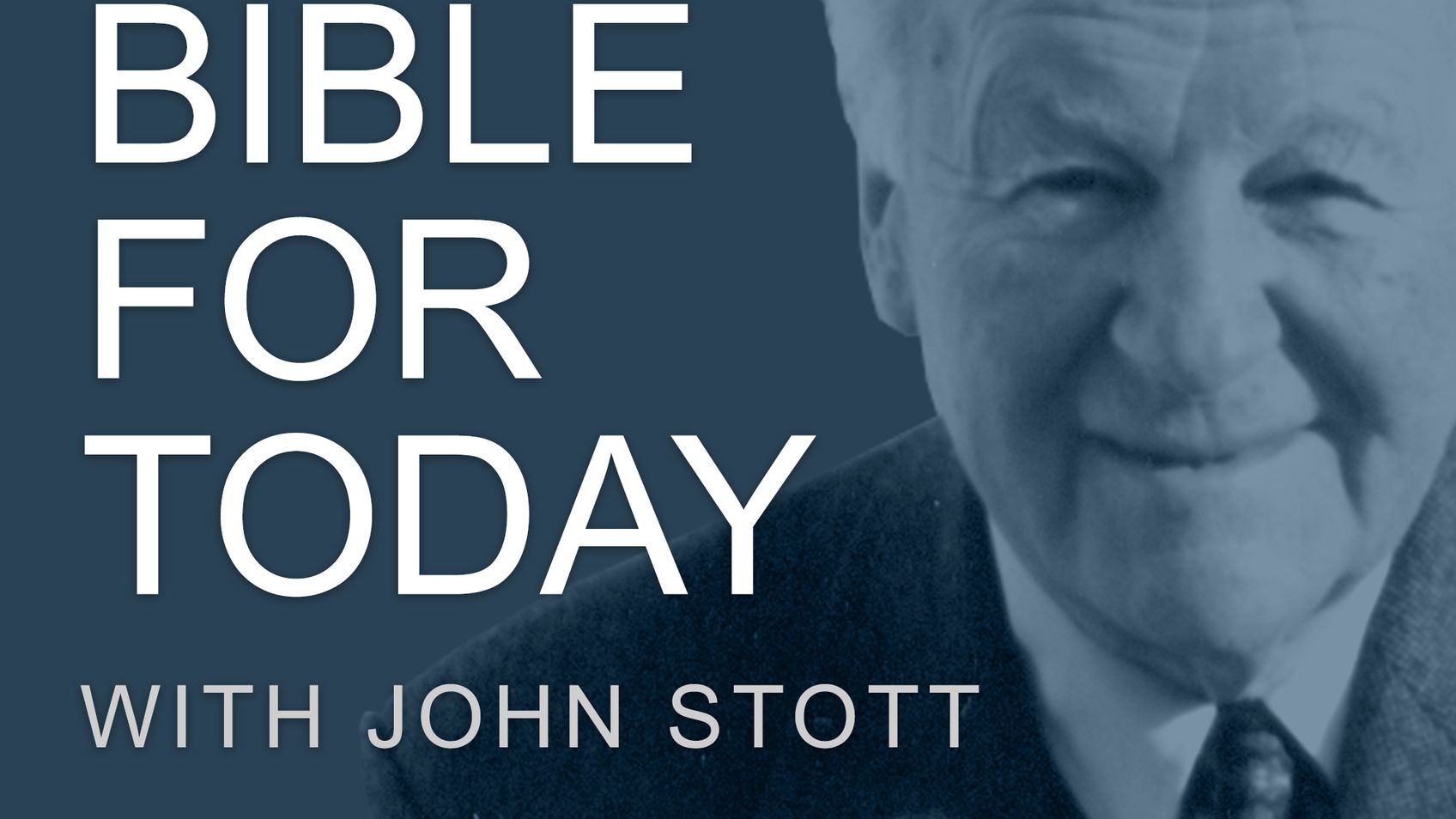Qualifications of Christian Leaders - Part 1
December 5, 2021

The Bible for Today with John StottPremier
John Stott explains that the health of the local church depends on the quality of its leaders. He shows that pastoral leadership was always God's purpose, that it may take different forms and should consist of a team and not a single leader.
More From The Bible for Today with John Stott

Qualifications of Christian Leaders - Part 2
The Bible for Today with John Stott
December 12, 2021
John Stott unpacks the scriptural qualifications for a church leaders. He shows the things that should not be present in a leader as well as the requi

Jesus‘s Vision for His Church
The Bible for Today with John Stott
December 19, 2021
John Stott sits in the upper room with Christ and hears Him pray for the truth of the church, the holiness of the church, the mission of the church an

Concern For God‘s Glory
The Bible for Today with John Stott
December 26, 2021
John Stott shows the primary purpose of prayer is not to just request things for ourselves and our loved ones, but to have the glory and purposes of G

More Than He Bargained For - Part 2
The Bible for Today with John Stott
November 28, 2021
John Stott explains why the healing of the lame man in Acts 3 was recorded, what Luke wanted his readers to learn from it and what lessons it has for

More Than He Bargained For - Part 1
The Bible for Today with John Stott
November 21, 2021
John Stott carefully analyses the miraculous healing of the lame man recorded in Acts 3. John asks why that particular event was recorded and whether

Repudiating Greed - Part 2
The Bible for Today with John Stott
November 14, 2021
John Stott explains what the apostle Paul meant about slaves and masters in the context of his day. John also shows us how to identify false teachers
More on OpenTheo

Why Is It Necessary to Believe Jesus Is God?
#STRask
February 19, 2026
Questions about why it’s necessary to believe Jesus is God, whether belief in the Trinity is required for salvation, and why one has to believe in the

Could the Writers of Scripture Have Been Influenced by Their Fallen Nature?
#STRask
October 23, 2025
Questions about whether or not it’s reasonable to worry that some of our current doctrines were influenced by the fallen nature of the apostles, and h

What Tools of Reasoning Help You Know What’s True, Right, and Good?
#STRask
December 4, 2025
Question about what tools of reasoning help us determine whether something is true or false, right or wrong, good or bad before bringing Scripture int

Lora Ries: Border Security and Immigration Policy
Knight & Rose Show
December 7, 2025
Wintery Knight and Desert Rose welcome Lora Ries to discuss border security and immigration policy. They explore Biden's policy changes, like ending R

Why Are So Many Christians Condemning LGB People Just Because of How They Love?
#STRask
January 15, 2026
Questions about Christians condemning LGB people just because of how they love, how God can expect someone to be celibate when others are free to marr

The Making of the American Mind with Matthew Spalding
Life and Books and Everything
February 2, 2026
The United States is unique in how much attention it pays to its founding, its founders, and its founding documents. Arguably, the most famous and mos

How Would You Convince Someone That Evil Exists?
#STRask
November 17, 2025
Questions about how to convince someone that evil exists, whether Charlie Kirk’s murder was part of God’s plan, whether that would mean the murderer d

The Man on the Middle Cross with Alistair Begg
Life and Books and Everything
November 10, 2025
If you haven’t seen the viral clip, go see it right now. In this episode, Kevin talks to Alistair about the preaching clip he didn’t intend to give, h

How Can We Know Who Is Teaching the Same Gospel Paul Taught?
#STRask
February 16, 2026
Questions about how we can know who is teaching the same gospel Paul taught, and whether or not Jeremiah 1:5 supports the idea that we pre-existed in

Why Would Any Rational Person Have to Use Any Religious Book?
#STRask
December 8, 2025
Questions about why any rational person would have to use any religious book, whether apologetics would be redundant if there were actually a good, un

Can You Recommend Good Books with More In-Depth Information and Ideas?
#STRask
January 22, 2026
Questions about good books on Christian apologetics, philosophy, and theology with more in-depth information and ideas, and resources to help an intel

Life and Ministry in Charlotte and in the SBC with Clint Pressley
Life and Books and Everything
December 15, 2025
In a rare cultural anomaly that may never be repeated in our lifetimes, the current SBC President and current PCA Moderator live in the same neighborh

Can Two Logical People Come to Conflicting Conclusions Without Committing a Fallacy?
#STRask
January 8, 2026
Questions about whether two logical people can come to conflicting conclusions on a topic without committing a fallacy, how Greg, as a public figure,

What Is the Role of the Holy Spirit in Our Lives if He Doesn’t Give Us Instructions?
#STRask
February 23, 2026
Questions about the role of the Holy Spirit in our lives, advice for someone who believes in God intellectually but struggles to understand how to hav

Sense, Sensibility, and Adam Smith with Jan Van Vliet
Life and Books and Everything
February 16, 2026
This year is a special anniversary for the United States as Americans celebrate 250 years of independence. But 1776 was an important year in more ways
